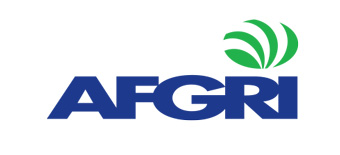How tech is helping AFGRI remain on the forefront of the agricultural sector
NAMPO, May 16, 2019 – Launched four years ago, the AFGRI eAccounts platform continues to grow in leaps and bounds. There are now 2,000 registered users across South Africa, with an average of 8,300 logins a month – that’s about 380 per day! Since inception, payments amounting to a staggering R13 billion have been made through eAccounts.
For those of you who might not know, eAccounts is the ground-breaking electronic account management solution offered to AFGRI’s customers through UNIGRO Financial Services. It is a key differentiator for AFGRI, with around R430 million worth of transactions flowing through the platform each month.
Customers can, from a grain handling and storage perspective, view and receive invoices and statements, as well as draw detailed reports and information of their respective grain delivered for storage at any of AFGRI Grain Management’s 85 locations across the country. They can also calculate storage rates according to grade and grain type.
Farmers are further able to access and monitor their procurement contracts, which contain detailed information as well as movement reports, with remittance advice available in PDF format. The platform also includes an insurance and claims functionality, and a more recent feature enables farmers to record rainfall on their lands.
In keeping with rapidly-evolving technology, several new features have been added, including the ability for farmers to see regional rainfall patterns as a heatmap. They can also track the average monthly rainfall for more than three years.
Farmers can now also add more information about their farm, by adding new land, as well as assigning a commodity and colour to the new field. A summary is available by simply hovering the mouse over the field in the map view. Beyond this, users can view AFGRI silos and bunker locations on the map, as well as get directions from their farm to the nearest silo or bunker, or a preferred location.
Finally, a new Hinterland “Promotional Display” functionality has been added, with users able to receive voucher codes online and redeem them at any Hinterland branch across the country.
“We are exceptionally pleased with the performance of the platform since its launch in 2015 and are delighted we’ve been able to put access to financial transactions specifically aimed at the farmer, as well as vital information for those involved directly in agriculture, literally in the hands of our users. We recognise that like all technology-based offerings, eAccounts needs to evolve. We have a number of exciting initiatives in the pipeline that we will be sharing with customers in due course,” says Tinus Prinsloo, the CEO of AFGRI.
However, technology extends further than this for the group as a whole. Recognising the increasing interest in – and reliance on – the role of technology in day-to-day farming operations, the rise of agricultural technology or “AgTech” as it is better known, is not being ignored by AFGRI.
Most recently AFGRI’s parent holding company, AFGRI Group Holdings (“AGH”), teamed up with specialised financial technology company, Synthesis Software Technologies, to form a joint venture to accelerate the development of innovative solutions in the AgTech space. The relationship between the two companies began in 2014 when Synthesis helped to develop eAccounts.
“Through the JV we will be able to take a longer-term approach to further development of eAccounts, and customers can expect to see more features, more innovation, and more value from the platform through strategic updates,” says Prinsloo.
AFGRI Technology Services (“ATS”), part of the larger AFGRI business, is also directly engaging with AFGRI’s farmers through their Future Farmer Forum to keep them apprised of the latest innovations in the AgTech movement. ATS was set-up to identify and develop future focussed solutions and partnerships that encourage a competitive and sustainable agricultural sector.
ATS looks for opportunities to introduce emerging technologies such as artificial intelligence (AI), digital solutions, Internet of Things (IOT) and other emerging technologies to the sector and to its customers. “The South African sector is not immune to the technology disruption we are seeing rapidly impact all industries globally, we need to ensure we are looking around corners,” says Niki Neumann, GM of Innovation and Strategy for AFGRI.
“We are seeing a lot of this disruption coming from start-ups and entrepreneurs, and it’s for this reason we have partnered with the University of Pretoria’s TuksNovation Activate Challenge, which is focused on identifying and supporting entrepreneurs who have solutions in the AgTech, agricultural financial technology and agricultural insurance technology space.”
ATS and AFGRI executives have played an active role throughout the competition, helping to provide business planning, industry insights and mentoring to the finalists.
“The objective of the competition is to identify potentially profitable technologies and disruptive start-ups for incubation and acceleration, with the intention of building AFGRI’s innovation capacity and to foster support for and growth of South Africa’s entrepreneurs.”

